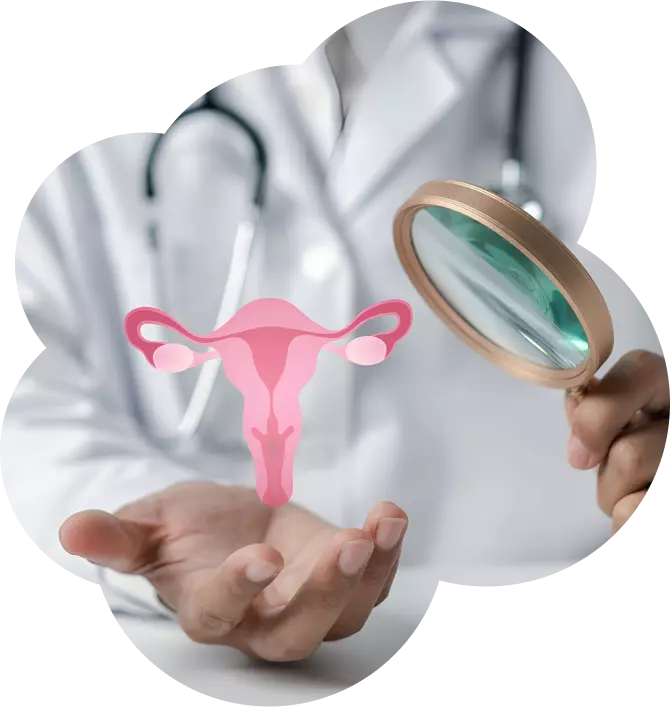
Pelvic Inflammatory Disease (PID) is a serious infection of the female reproductive organs, including the uterus, fallopian tubes, and ovaries. It is typically caused by sexually transmitted bacteria, such as chlamydia and gonorrhea, that spread from the vagina to the upper genital tract.
PID can lead to chronic pelvic pain, infertility, and an increased risk of ectopic pregnancy if left untreated. Symptoms may include abdominal pain, abnormal vaginal discharge, fever, and irregular menstrual cycles.
Prompt diagnosis and treatment with antibiotics are crucial to prevent long-term complications and preserve fertility. Regular STI screening and safe sexual practices can help reduce the risk of developing PID.
Pelvic Inflammatory Disease (PID) has Common symptoms that include
PID can lead to serious complications if left untreated, such as infertility, ectopic pregnancy, and chronic pelvic pain. Early diagnosis and treatment of PID is crucial for protecting your reproductive health.


A dangerous illness of the female reproductive system, Pelvic Inflammatory Disease (PID) is frequently brought on by bacteria that are spread during sexual activity. The primary causes of PID symptoms include
Untreated sexually transmitted infections (STIs): Chlamydia and gonorrhea are the most common culprits, as the bacteria can spread from the vagina or cervix to the uterus, fallopian tubes, and ovaries.
Intrauterine device (IUD) use: While rare, the insertion of an IUD can sometimes push bacteria deeper into the reproductive tract, leading to PID.
Recent childbirth, miscarriage, or abortion: These events can introduce bacteria into the upper genital tract and cause PID.
Poor hygiene: Inadequate cleaning after menstruation or sexual activity can allow bacteria to enter the reproductive organs.
Diagnosing PID involves a comprehensive evaluation by a healthcare provider, including a physical examination, medical history, and various tests.
The diagnosis typically begins with a pelvic exam to assess the presence of tenderness, swelling, or other signs of infection. Laboratory tests, such as a cervical culture or nucleic acid amplification test (NAAT), may be conducted to identify the underlying bacterial or viral infection.
Imaging tests, like ultrasound or laparoscopy, may also be used to rule out other conditions and confirm the presence of PID. Early diagnosis and appropriate treatment are crucial to prevent long-term complications, such as infertility, chronic pelvic pain, and ectopic pregnancy.


Pelvic Inflammatory Disease (PID) is a serious infection of the female reproductive organs that requires prompt medical treatment. The primary goals of PID treatment are to eliminate the infection, prevent complications, and reduce the risk of future infertility.
The standard treatment for PID typically involves a combination of antibiotics, taken orally or intravenously, depending on the severity of the infection. In more severe cases, hospitalization may be necessary for close monitoring and administration of intravenous antibiotics. In some instances, surgical intervention may be required to address complications, such as the formation of abscesses.
Prompt and appropriate treatment is crucial, as untreated PID can lead to long-term complications, including chronic pelvic pain, ectopic pregnancy, and infertility. Early diagnosis and management are essential for a successful recovery.
Pelvic Inflammatory Disease (PID) is a serious infection of the female reproductive organs.Therefore, to prevent PID, it's important to

